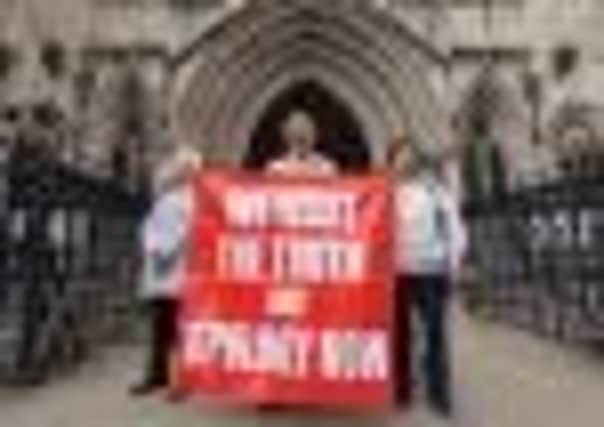Judges block inquiry into Malaya ‘massacre’ by Scots Guards


Victims’ relatives described the shootings at Batang Kali, Malaya, in December 1948 as a “massacre” and judges said that allegations against members of the Scots Guards were “as serious as it is possible to make”.
But Sir John Thomas – president of the Queen’s Bench Division of the High Court, who sat with Mr Justice Treacy – said it would be “very difficult” to establish whether the shootings were “deliberate executions”.
Advertisement
Hide AdAdvertisement
Hide AdLawyers for the relatives of those killed said they planned to appeal the decision.
The killing of 24 workers, all from a plantation owned by Scot Thomas Menzies, has been described as Britain’s Mai Lai, a massacre of unarmed civilians during the Vietnam War.
Solicitor John Halford, of Bindmans lawyers, said: “At the most fundamental level, when British troops are sent for peace- keeping purposes and they kill civilians without any good reason, there ought to be some kind of acknowledgement. Otherwise, these kind of human rights abuses will continue to occur.”
He said although some of the 16 Scots Guards said to be involved were still alive, lawyers had never argued that individual prosecutions were appropriate.
However, he said some of the children of those killed, who had witnessed the killings, were involved in the demand for an inquiry and that they still needed answers.
Judges said the cost of an inquiry would be “materially greater” than £1 million and said it was “very questionable” whether “much can be learnt”.
British soldiers were conducting operations against communist insurgents during the “Malayan Emergency” when the plantation workers were killed, judges heard.
An official inquiry was held into the killings in 1948 by Malayan Federation attorney general Sir Stafford Foster-Sutton, but it was later claimed some of the soldiers questioned were merely asked to sign pre-written accounts.
Advertisement
Hide AdAdvertisement
Hide AdIn the 1970s, some of the soldiers involved approached a newspaper to give their own account of what had happened. This led to an investigation by Scotland Yard and by the government of Edward Heath.
A BBC documentary, In Cold Blood, also raised questions about the events, but nothing was done.
Relatives said there was enough evidence to justify an investigation and asked judges to overturn a government decision not to hold an inquiry.
Foreign Secretary William Hague and Defence Secretary Philip Hammond opposed the relatives’ application, arguing that the decision not to hold an inquiry was lawful.
Judges yesterday ruled in the government’s favour, following a hearing in London in May. Relatives said they would appeal.
Sir John, in a written ruling handed down at a hearing in London, said: “There are enormous difficulties in conducting an inquiry into a matter that happened over 63 years ago.”
Sir John said decisions taken by Mr Hague and Mr Hammond not to set up an inquiry were “not unreasonable”.
Mr Halford, who represents victims’ families, said after the hearing that relatives would appeal. He added: “The survivors and families of the Batang Kali massacre will continue to pursue legal action.”